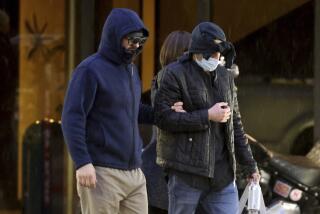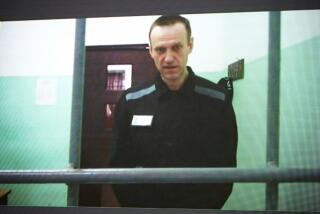The Russia investigation is over, but there’s a lot we still don’t know

In remarks to the press, President Trump comments on the Mueller findings.
It might be hard to imagine, but despite dozens of criminal charges and wall-to-wall media coverage, the end of the Russia investigation has left a lot of unanswered questions.
Few of them were addressed in the bare-bones, four-page summary that Atty. Gen. William Barr sent to Congress on Sunday, and it’s unclear whether there are more details in the full, confidential report that special counsel Robert S. Mueller III submitted to Barr on Friday.
Here’s what we still don’t know.
The professor
The first person to plead guilty in the nearly two-year investigation was George Papadopoulos, a young foreign policy aide to President Trump’s campaign. He admitted to lying about his conversations with Joseph Mifsud, a Maltese professor who allegedly told him that Russians were collecting dirt on Hillary Clinton and had thousands of emails. This conversation took place in April 2016, before Moscow started releasing hacked Democratic Party emails. Did Mifsud have inside information from the Kremlin? And did he share it as part of the Russian covert operation?
The Russian
Before Paul Manafort began leading Trump’s campaign, he worked in Ukraine with Konstantin Kilimnik, a Russian whom prosecutors have repeatedly described as connected to Moscow’s intelligence apparatus. However, they have not disclosed any evidence of these ties.
During the campaign, Manafort provided Kilimnik with polling data and later lied about it when asked by the special counsel’s office, another red flag. Yet no charges were filed in connection with the decision to share the data. What was Manafort’s goal? And did Kilimnik provide the information to anyone else?
The dirty trickster
Roger Stone, a longtime political advisor to Trump, allegedly spent the campaign trying to learn more about WikiLeaks’ plans to release hacked Democratic Party emails. According to the indictment against him, Stone reached out to the organization’s leader, Julian Assange, through intermediaries, but it’s unclear whether he ever made contact. (Stone has pleaded not guilty to the charges against him and faces trial later this year.) The indictment also said “a senior Trump campaign official was directed” to contact Stone to talk about WikiLeaks after the first email release during the Democratic National Convention. Who besides Trump was in position to direct a senior official to do something like that?
The Trump Tower meeting
Donald Trump Jr. didn’t hesitate when he received an email from a British music publicist offering to arrange a meeting with a Russian lawyer who was said to be part of the Kremlin’s effort to support his father’s candidacy. Promised incriminating information on Clinton, Trump Jr. responded, “I love it.” Also at the meeting, which took place in Trump Tower in June 2016, was Jared Kushner, Trump’s son-in-law and advisor, and Manafort, the campaign chairman.
However, no charges were filed in connection with the meeting, and participants have said no campaign assistance was provided. Did the Russian lawyer, Natalia V. Veselnitskaya, actually have a role in Moscow’s covert campaign? Mueller has never said.
The lies
More than anything, Mueller uncovered an epidemic of lying among Trump’s associates. Michael Flynn, the president’s first national security advisor, lied about discussing sanctions with the Russian ambassador during the transition period after the election. Michael Cohen, Trump’s former lawyer, lied about Trump Organization plans to build a luxury skyscraper in Moscow. And, as noted, Papadopoulos lied about his conversations with Mifsud, and Manafort about his dealings with Kilimnik.
Mueller apparently did not find evidence of a conspiracy between Trump’s campaign and Russia, yet why all the lying? Cohen testified that the president wanted him to mislead Congress about the Trump Tower Moscow proposal to avoid raising questions about Russian ties. Did others also lie to serve Trump?
The obstruction allegations
Since Trump took office, media reports have uncovered a series of his attempts, behind the scenes, to blunt or end the Russia investigation. James B. Comey testified to Congress that Trump asked him to go easy on Flynn when he was FBI director, in February 2017. The Washington Post reported that Trump asked intelligence officials to get Comey to back off the investigation in March 2017. Comey was then fired by Trump that May, leading to Mueller’s appointment as special counsel. The New York Times reported that Trump wanted to fire Mueller as well in June 2017, but backed down when Don McGahn, then the White House counsel, refused to carry out the order.
Did the special counsel’s office substantiate any of these reports, or even learn more? And what might that mean for House Democrats’ own investigations into whether the president abused his power?
More to Read
Get the L.A. Times Politics newsletter
Deeply reported insights into legislation, politics and policy from Sacramento, Washington and beyond. In your inbox three times per week.
You may occasionally receive promotional content from the Los Angeles Times.







